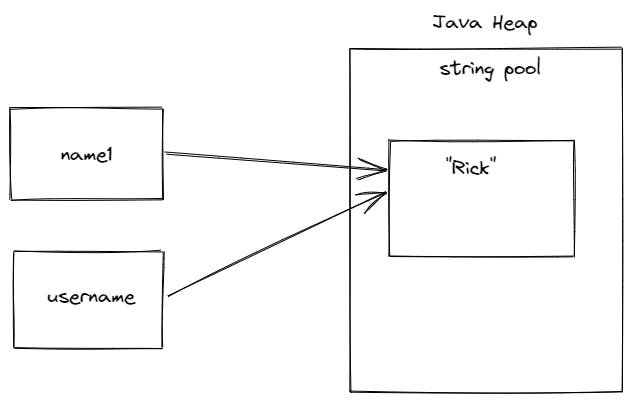Why Are Strings Immutable in Java? Important Understanding for Programmers
Why Are Strings Immutable in Java? Important Understanding for Programmers
Blog Article
Unalterable Strings: A Secret Part in Ensuring Information Consistency and Reliability
In the realm of information administration, the relevance of unalterable strings can not be overstated. The idea of unalterable strings goes beyond mere triviality; it is a linchpin in the facility internet of data administration.
The Principle of Unalterable Strings
Unalterable strings, a basic principle in programs, refer to strings that can not be changed as soon as they are produced. In significance, as soon as a string worth is assigned, any kind of procedure that shows up to customize the string really creates a brand-new string. This immutability guarantees information consistency and dependability in applications, as it stops unforeseen modifications to the initial data.
Benefits in Data Consistency

Data consistency is crucial in numerous facets of software application growth, including database administration, multi-threaded settings, and dispersed systems (Why are strings immutable in Java?). Unalterable strings contribute dramatically to achieving this consistency by stopping data corruption as a result of simultaneous access. In situations where numerous procedures or threads engage with the exact same information concurrently, immutable strings work as a safeguard against race problems and synchronization concerns
Furthermore, the immutability of strings streamlines debugging and screening processes. With unalterable strings, developers can rely on that as soon as a string is set, it will certainly stay unchanged, making it much easier to map the resource of errors and ensuring that test instances generate regular outcomes. This reliability in information taking care of eventually brings about much more durable and stable applications.

Implementing Unalterable Strings
Making sure the immutability of strings needs a thoughtful method to their implementation in software development. Once a string item is created, one key technique is to create string classes in a way that stops adjustments. By making strings immutable, designers can boost information consistency and reliability in their applications.
To implement immutable strings properly, developers ought to favor creating new string objects as opposed to customizing existing ones. This practice ensures that as soon as a string is appointed a value, it can not be altered. In addition, any kind of operation that appears to change the string should develop a new string with the wanted changes instead of changing the initial.
Furthermore, utilizing immutable strings can streamline concurrency management in multi-threaded environments. Because immutable strings can not be changed after creation, they can be securely shared amongst multiple threads without the risk of data corruption.
Role in Dependability Assurance
In software program development, the utilization of unalterable strings plays an important function in making sure the dependability of information procedures. Unalterable strings, once created, can not be changed, guaranteeing that the information they represent stays regular throughout the application's execution. This immutability residential property offers a level of assurance that the data being processed will certainly not be inadvertently changed, causing unforeseen results or errors in the system.
By including unalterable strings into software style, developers can enhance the dependability of their applications by lessening the risks linked with mutable information - Why are strings immutable in Java?. Unalterable strings assist in preventing data corruption or unintended modifications, which can be specifically essential when dealing with sensitive details or when information honesty is critical
Furthermore, using unalterable strings simplifies simultaneous handling, as numerous threads can safely access and share string data without the risk of one string changing the content while another is reviewing it. This element contributes considerably to the general integrity of the software application system, making certain predictable and consistent behavior in information handling procedures.
Applications and System Assimilation
The smooth integration of unalterable strings into numerous applications and systems is critical for ensuring durable information uniformity and reliability throughout varied technical settings - Why are strings immutable in Java?. Unalterable strings play a critical duty in enhancing the honesty of data exchanges and communications within complex software program ecosystems. By including immutable strings right into applications, developers can alleviate the risks linked with data meddling, unapproved modifications, and unintended alterations, therefore strengthening the general safety stance of the system
In the context of system integration, immutable strings act as a foundational element for establishing safe and secure communication networks and facilitating seamless information transfers in between various redirected here elements. Their immutable nature ensures that data transferred in between systems remains the same and verifiable, minimizing the probability of variances or errors that can jeopardize the integrity of the entire system. Furthermore, unalterable strings can boost interoperability in between disparate systems by providing a standardized format for data depiction, making it possible for much more reliable information handling and exchange procedures throughout interconnected platforms. By taking on immutable strings in applications and system assimilation procedures, companies can strengthen their information infrastructure and maintain the dependability and uniformity of their information assets.
Verdict
Finally, unalterable strings play a vital duty in maintaining information uniformity and integrity in numerous applications and system combinations. By making sure that strings can not be changed when created, the stability of data is preserved, decreasing the danger of mistakes and incongruities. Implementing immutable strings can significantly improve the dependability of systems, ultimately leading to even more reputable and exact data handling.

Report this page